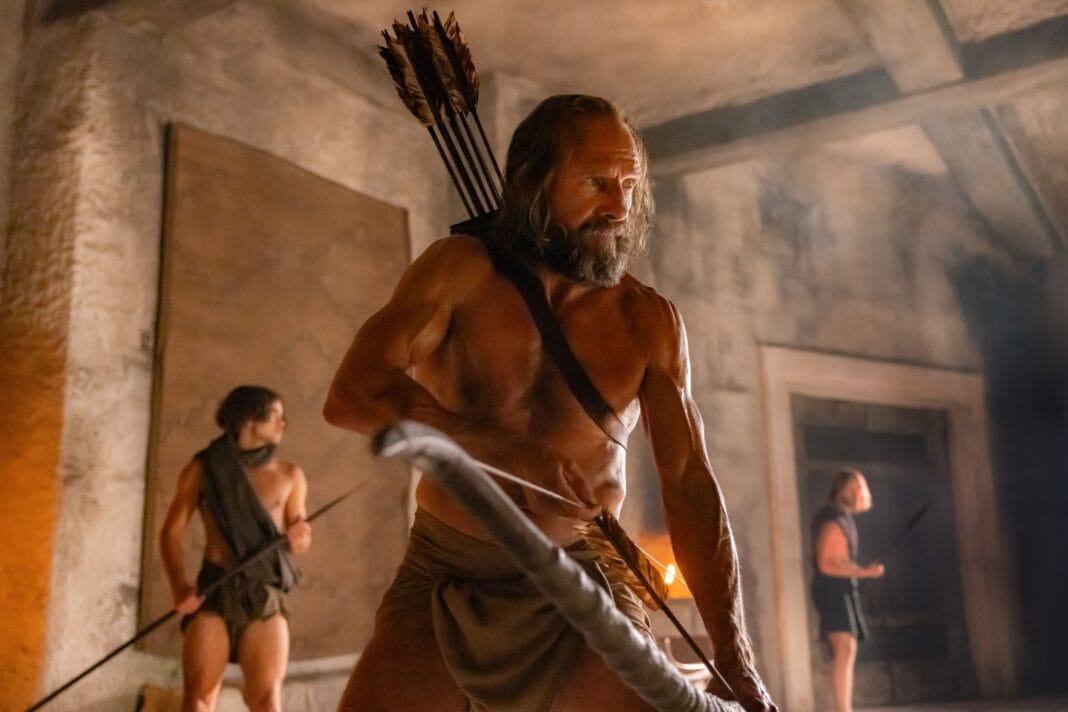The Return – A Riveting Tale of Love, Loss, and Redemption
Experience the captivating journey of Greek king Odysseus in “The Return,” directed by Uberto Pasolini. Starring Ralph Fiennes, Juliette Binoche, and Charlie Plummer, this film delves deep into the complexities of human emotions and the aftermath of war.
Full Review
After 20 years away, Odysseus finally returns to his kingdom of Ithica, but he is no longer the same man who left to fight in the Trojan War. Ralph Fiennes delivers a powerful performance as Odysseus, portraying the internal struggle of a man haunted by his past actions.
Juliette Binoche shines as Penelope, Odysseus’s wife, who grapples with the uncertainty of his fate and the pressure to move on with her life. Charlie Plummer captures the essence of Telemachus, their son, torn between hope and despair.
The film explores themes of love, loyalty, and sacrifice, weaving a narrative that is both poignant and thought-provoking. As Odysseus navigates his return, he must confront the consequences of his actions and find a way to reconcile with his past.
While the pacing may feel sluggish at times, the emotional depth of the characters and the intricate storytelling keep the audience engaged. The climax of the film is intense and satisfying, offering a resolution to the characters’ arcs.
Conclusion
“The Return” is a compelling exploration of the human experience, set against the backdrop of Greek mythology. With stellar performances and a gripping narrative, this film is a must-watch for fans of character-driven storytelling.
FAQs
1. What is the main premise of “The Return”?
“The Return” follows the journey of Greek king Odysseus as he returns to his kingdom of Ithica after a 20-year absence.
2. Who are the key actors in the film?
The film stars Ralph Fiennes, Juliette Binoche, and Charlie Plummer in lead roles, delivering powerful performances that resonate with the audience.
3. What themes are explored in “The Return”?
“The Return” delves into themes of love, loss, redemption, and the impact of war on individuals and their relationships.
4. How does the film portray the character of Odysseus?
Ralph Fiennes portrays Odysseus as a complex and conflicted character, struggling with the guilt of his past actions and the desire for redemption.
5. What sets “The Return” apart from other films?
The film’s focus on character-driven storytelling and emotional depth sets it apart, offering a unique perspective on the aftermath of war.
6. Is “The Return” visually striking?
While the film may lack visually stunning elements, the performances and storytelling more than make up for it, drawing the audience into the characters’ emotional journey.
7. How does the film handle the climax?
The climax of “The Return” is intense and satisfying, providing a resolution to the characters’ arcs and keeping the audience invested in the story.
8. What is the significance of Penelope’s character in the film?
Penelope’s character represents resilience and strength in the face of adversity, adding depth to the narrative and highlighting the impact of Odysseus’s absence.
9. How does “The Return” explore the theme of family?
The film delves into the complexities of family dynamics, showcasing the bonds that unite and sometimes divide individuals in times of hardship.
10. What makes “The Return” a must-watch film?
“The Return” offers a compelling story, stellar performances, and a nuanced exploration of human emotions, making it a captivating and thought-provoking cinematic experience.
Tags
Tags: Greek mythology, Odyssey, Drama, Redemption, Character-driven

